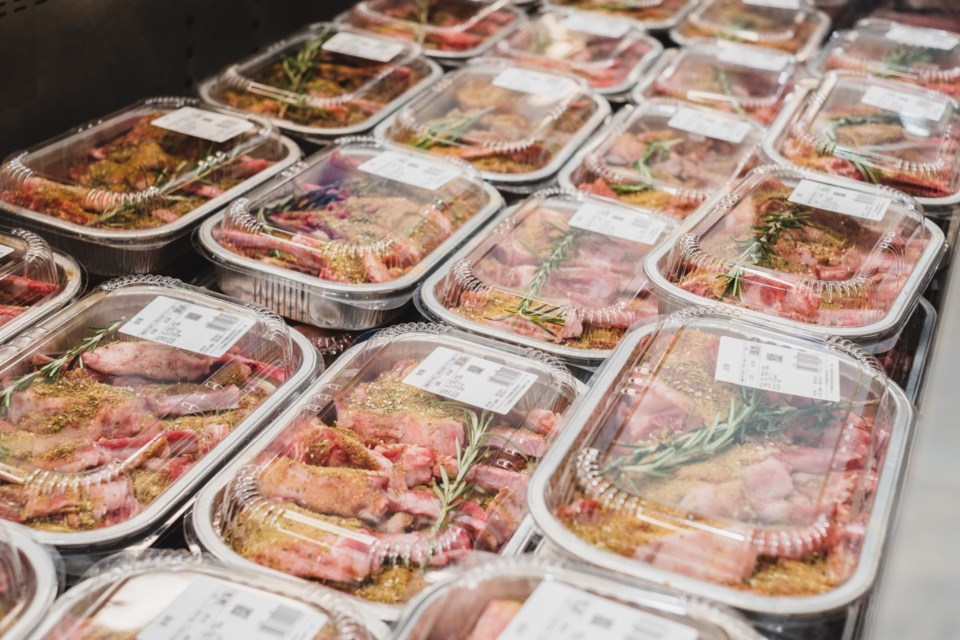WESTERN PRODUCER — The federal government expects the United Kingdom to comply with the rules of the Comprehensive and Progressive Agreement for Trans-Pacific Partnership.
That includes regulations around the import of Canadian beef and pork, which should be “science and risk based.”
“From day one, the Government of Canada said it would welcome new members as long as they can uphold the high standards of the CPTPP, and the U.K. has assured Canada and all members that they will fully comply with the sanitary and phytosanitary obligations of the CPTPP,” said Agriculture Canada spokesperson Samantha Seary.
“The Government of Canada supports exporters that decide to ship their products to the U.K. and will continue to stand up for its farmers, producer, and exporters as always.”
In mid-July, the U.K. became the 12th member of the CPTPP trade pact, joining Canada, Australia, Brunei, Chile, Japan, Malaysia, Mexico, New Zealand, Peru, Singapore and Vietnam.
The federal government welcomed Britain into the deal, but leaders of Canada’s beef, pork and red meat industries say the terms of Britain’s entry into the trade deal are unacceptable.
Other countries in the CPTPP have agreed that Canada’s food system is trustworthy and reliable, but the U.K. government will not recognize the safety of Canada’s meat production system and will not permit Canadian beef or pork into Britain. The current situation, where Canada accepts imports of British meat and the U.K. rejects Canadian beef and pork, is absurd, say industry reps and some politicians.
“We’re exporting zero Canadian beef into the United Kingdom and U.K. beef is up 700 percent into Canada,” said MP John Barlow, who lives in Okotoks and represents the riding of Foothills. “This was an opportunity to address this massive discrepancy and the Liberals didn’t do it. They are pushing for the United Kingdom ascension into the CPTPP as quickly as possible, without addressing some of these very glaring issues.”
Trade data shows that Canadian exports of beef and pork to Britain are non-existent because the U.K. doesn’t approve of a carcass wash applied at Canadian slaughter plants and opposes the use growth promotants in beef or pork production.
“The U.K. does not accept Canada’s food safety and animal health systems and measures, and those non-tariff barriers limit our access to the U.K. market,” says the Canadian Cattle Association, the Canadian Pork Council and the Canadian Meat Council.
Barlow and others are worried that the U.K.’s position rejecting Canada’s protocols could spread to other members of the trade pact.
“We don’t want … ideological and activist-based, non science… and not-tariff trade barriers to be imposed upon other CPTPP members or future CPTPP members. It changes the entire structure of that trade agreement.”
The federal government is not taking and will not take a passive approach on this file, Seary said.
If the U.K. doesn’t meet the standards of the trade deal, Canada will push back.
The federal government will assert its trade rights and use trade enforcement mechanisms if necessary.
“Canada will use the tools available through the CPTPP, as well as the World Trade Organization, to ensure any requirements for Canadian beef imports are science and risk-based,” Seary said.
That said, the federal government believes Britain joining the trade deal is a real opportunity for Canada’s agriculture industry.
“With this accession (to CPTPP), the Government of Canada secured additional duty-free tariff rate quota volumes into the U.K. for pork and beef and immediate duty-free, quota-free access for sweet corn,” Seary said.
“Canada will receive preferential treatment for poultry and eggs, which are excluded under the bilateral agreement. In order to move towards greater reciprocity, the Government of Canada established a new CPTPP TRQ (tariff rate quota) for imported U.K. beef to address the current imbalance in access — a key Canadian industry ask in the absence of bilateral duty-free, quota-free access.”
Contact [email protected]



